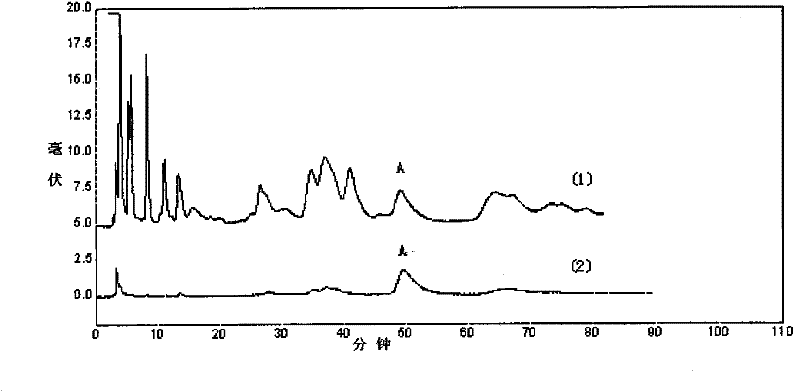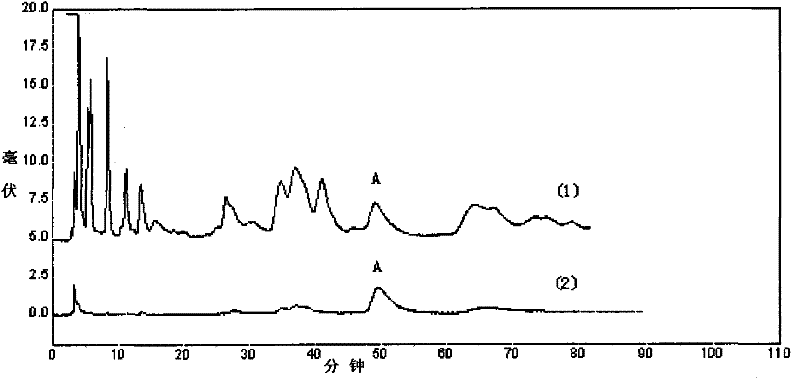Preparation method of molecularly imprinted polymer capable of enriching caffeic acid phenethyl ester
A technology of phenethyl caffeate and molecular imprinting, which is applied in the field of bioengineering, can solve the problems of limited natural sources and regional differences in content of phenethyl caffeate, and achieve the effects of low price, long service life and simple synthesis
- Summary
- Abstract
- Description
- Claims
- Application Information
AI Technical Summary
Problems solved by technology
Method used
Image
Examples
Embodiment
[0023] A method for preparing molecularly imprinted polymers that can enrich phenethyl caffeate, the steps are as follows: 284 mg template molecule phenethyl caffeate and 420 μL functional monomer 4-vinylpyridine are dissolved in a mixture of 2 mL tetrahydrofuran and 3 mL isooctane In the solvent, mix well and stir for 2 hours; add 1882μL cross-linking agent ethylene glycol dimethacrylate, mix well and stir for 10min; add 30mg initiator azobisisobutyronitrile, mix well and stir for 10min; mix the above mixture Blow nitrogen to deoxidize for 4 minutes, seal it, place it in a constant temperature water bath and react at 60°C for 24 hours to obtain a block polymer; grind the obtained block polymer with a mortar, screen with a grading sieve, and reserve 60 mesh-100 mesh polymer; the above polymer is extracted with 250mL Soxhlet extract to remove unreacted substances, the extraction time is 48h, the Soxhlet extract is a mixture of methanol and acetic acid, and its volume ratio is 9...
PUM
 Login to View More
Login to View More Abstract
Description
Claims
Application Information
 Login to View More
Login to View More - R&D Engineer
- R&D Manager
- IP Professional
- Industry Leading Data Capabilities
- Powerful AI technology
- Patent DNA Extraction
Browse by: Latest US Patents, China's latest patents, Technical Efficacy Thesaurus, Application Domain, Technology Topic, Popular Technical Reports.
© 2024 PatSnap. All rights reserved.Legal|Privacy policy|Modern Slavery Act Transparency Statement|Sitemap|About US| Contact US: help@patsnap.com









